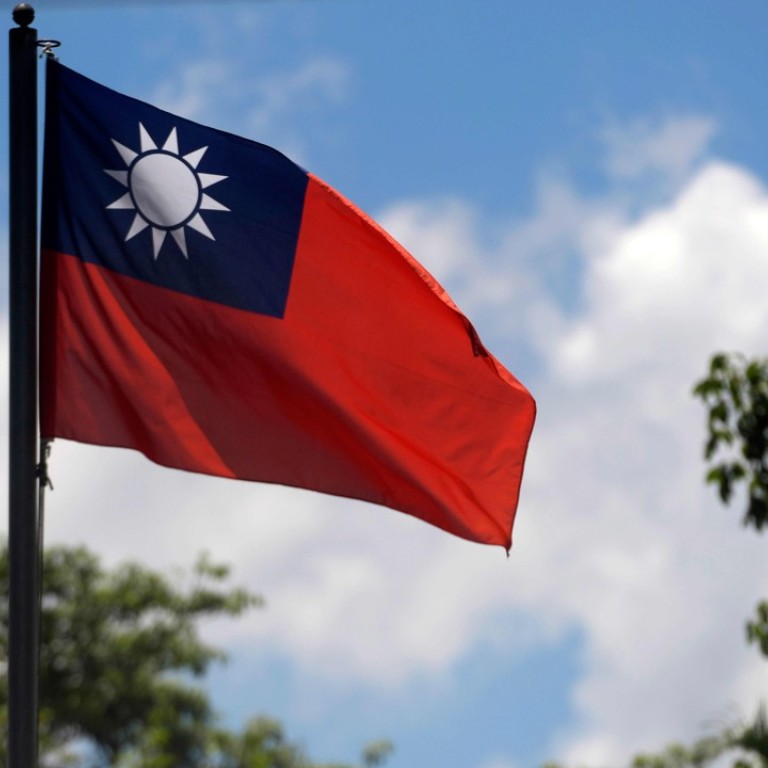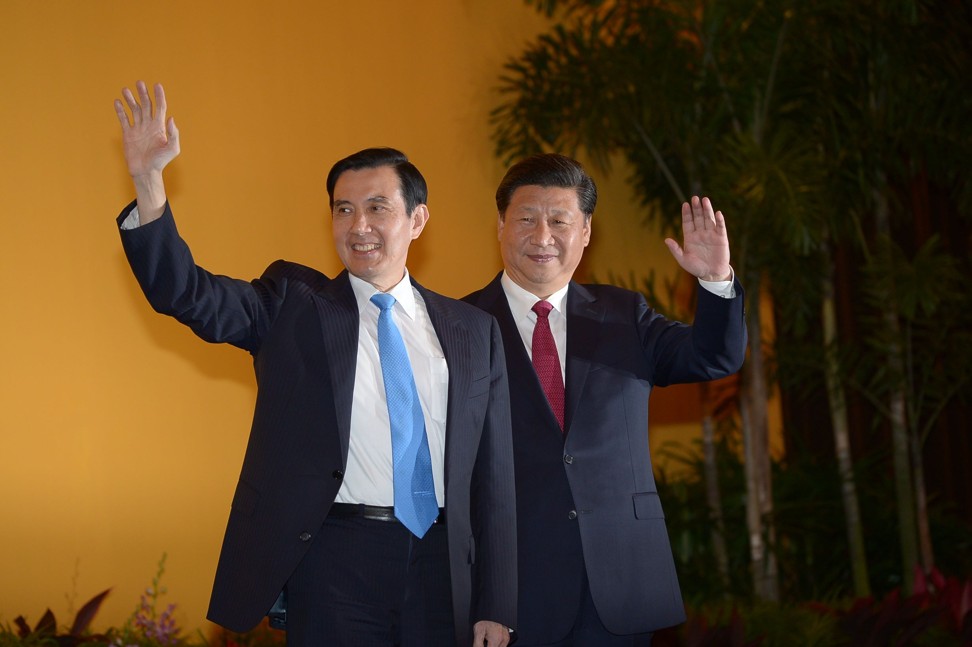
Taiwan ‘spy scandal’ a symptom of Beijing’s growing distrust of Taipei, observers say
State media reports alleging espionage by self-ruled island ‘intended as a warning’, former deputy defence minister of Taiwan says
Beijing’s claims that Taipei has been blackmailing mainland students at Taiwanese universities to spy for the self-ruled island reflect the increasingly fraught relationship between the two sides, observers said.
In the past week, mainland Chinese state media have reported that the authorities had “cracked” more than 100 espionage cases involving the self-ruled island since 2011, including several of them allegedly operated from college campuses.
“Mainland students in Taiwan are far away from home and therefore have a strong desire to make friends. Taiwan’s intelligence agents made use of this,” the report said.
Beijing tells Taiwan to halt all spying and ‘sabotage’ in mainland China
Beijing’s ties with Taipei have been under pressure since Tsai Ing-wen from the independence-leaning Democratic Progressive Party was elected the island’s president in 2016, and those tensions might have been a catalyst for the mainland’s allegations of espionage.
But spies – both real and imagined – have been around since the official separation of the two sides’ governments in 1949.
The presence of a spy inside the mainland’s military was inadvertently exposed in 1996, when the Taiwanese government was headed by Lee Teng-hui from the Kuomintang, now the island’s main opposition party.
After mainland troops fired missiles close to Taiwan, the island’s defence ministry issued a statement, intended to reassure citizens, saying the warheads were unarmed. However, the only way Taiwanese officials could have known that was if they had had a spy inside the People’s Liberation Army.
A high-level investigation was mounted in Beijing and two military personnel were identified as spies and executed. The pair are regarded as heroes in Taiwan.
Honour for Chinese spy killed for tipping off Taiwan during missile crisis
But the penalty for spying has not always been so severe. In November 2015, the two sides exchanged captured spies after a meeting between Chinese President Xi Jinping and then Taiwanese president Ma Ying-jeou. The cross-strait relationship at the time was warmer than it had been for many years.
Despite the fluctuating relationship between Beijing and Taipei, the very public way in which the latest espionage allegations were reported by state media this week was unexpected, according to Lin Chong-Pin, a former Taiwanese deputy defence minister.
“This is very high profile,” he said. “In the past, when similar spy cases were revealed, they were only briefly touched upon. Rarely would the full names [of the accused] be made public.
“This time it shows Beijing wants to shame [Taipei]. It is intended as a warning to those who are in power in Taiwan.”
Six specialists in Taiwan affairs from the mainland refused even to comment on the issue when contacted by the South China Morning Post. One of them said only that it was “too sensitive”.
Liu Guoshen, director of the Taiwan Research Institute at Xiamen University, said it was unclear why Beijing had opted to be so public about the latest spy allegations, but agreed it was a sign of uneasy relations between the two sides.
“The governing party [of Taiwan] and the mainland have no basis for mutual trust. It is obvious they have conflicting policies,” he said.
More importantly, Beijing seemed uninterested in taking a step-by-step approach to resolve the issue, Liu said, but rather wanted to “speed things up”.
“This message is very clear,” he said.
Taiwan braced for wave of cyberattacks from mainland China ahead of local elections
Beijing has been relentless in its efforts to isolate Taiwan on the world stage since Tsai came to power. Last month El Salvador became the sixth country during Tsai’s presidency to sever diplomatic ties with the island in favour of establishing formal links.
Beijing has also intensified its military drills in the waters and skies near Taiwan, and in July put pressure on 44 international airlines to remove any references to the island as a separate country from their websites.
Edward Chen I-hsin, a professor of political science at Chinese Culture University in Taipei, said the relationship between the two sides had worsened to such an extent that Beijing was now openly hostile towards Taiwan. And that hostility applied not only to diplomacy and politics, but also “softer aspects”, like education, he said.
“These reports are targeting mainland people as they are played through these mainland channels, and aim to discourage people from going to Taiwan to work or study,” Chen said.
“When there are fewer human exchanges, there could be even more hostility between people from the two sides.”
Taiwan denounces Beijing’s drive to leave it isolated on world stage
Chen also questioned the authenticity of the content of the CCTV report.
In one of the cases, a mainland exchange student to Taiwan said he was blackmailed into spying for Taipei after being lured into a “honey trap”.
The young man said that he fell in love with a 34-year-old Taiwanese woman – who later turned out to be a spy – in 2011 while he was studying in Taiwan. When he returned to the mainland he agreed to share information with his lover – in return for cash – about the science and technology projects he was working on.
“To be honest, what kind of intelligence would a mainland student be able to provide?” Chen said.
“Even if he did have some secret information, it is likely to be of a low level and not of much use.”
Taiwanese with mainland China residence permits could face restrictions at home, Taipei warns
The Taiwanese government described the cases reported by CCTV as “fabricated”, and warned that students from the island who studied on the mainland risked being labelled as spies by Beijing.
Chen said that given the state of Taipei-Beijing relations, mainland students who studied in Taiwan were likely to face problems in the job market back home, as employers would be concerned they had in some way been “infiltrated”.


